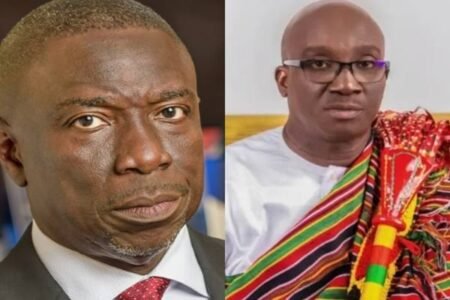Alhaji Aliko Dangote, President of the Dangote Group, has expressed doubt over the resumption of operations of state-owned refineries which are managed by the Nigerian National Petroleum Company Limited, NNPC,
Dangote further stated that Port Harcourt, Warri, and Kaduna had gobbled up to $18 billion yet refused to work.
The billionaire businessman remarked on Thursday after touring the Dangote Petroleum Refinery in Lekki, Lagos, with members of Global CEO Africa from the Lagos Business School.
According to Dangote, the 650,000-capacity Dangote refinery, which he built after the government of late President Umar Yar’Adua halted his acquisition of government refineries, now devotes more than half of its output to Premium Motor Spirit (petrol), whereas government refineries devote only 22% of their production to petrol.
Dangote explained how he and his colleagues had to return the refineries to Yar’adua just a few months after former President Olusegun Obasanjo left office in 2007.
According to him, the refinery’s previous managers informed Yar’Adua that Obasanjo sold the facilities for less than their cost as a parting gift.
“The refineries that we bought before, which were owned by Nigeria, were doing about 22 per cent of PMS. We bought the refineries in January 2007. Then we had to return them to the government because there was a change of government.
“And the managing director at that time convinced Yar’adua that the refineries would work. They said they just gave them to us as a parting gift or so. And as of today, they have spent about $18bn on those refineries, and they are still not working. And I don’t think, and I doubt very much if they will work,” he said.
Dangote stressed that the turnaround maintenance of the refineries was analogous to attempting to update an automobile designed 40 years ago, while technology had improved.
“(The turnaround maintenance) is like you trying to modernise a car that was built 40 years ago when technology and everything have changed. Even if you change the engine, the body will not be able to take the shock of that new technology engine,” he stated.
Dangote’s statement echoed Obasanjo’s remarks last year about the refineries, two of which were shut down again after being declared active by former NNPC Group Managing Director Mele Kyari in Q4 2024.
Obasanjo asserted that the NNPC was aware that it could not operate the refineries, claiming that multinational oil firms such as Shell had previously declined to run the facilities when he wanted them to.
According to Obasanjo, certain Nigerians, including Aliko Dangote, previously paid $750 million to take over the refineries, but his successor, Yar’adua, cancelled the contract.
“I ran to him (Yar’Adua); I said, ‘You know this is not right.’ He said, ‘Well, NNPC said they can do it.’ I said, ‘NNPC cannot do it.’ I told my successor that ‘the refineries, from what I heard and know, will not work, and when you want to sell them, you will not get anybody to buy them at $200m as scrap’. And that is the situation we are in.
“So, why do we do this kind of thing to ourselves? NNPC knew that they could not do it, but they knew they could eat and carry on with the corruption that was going on in NNPC. When people were there to do it, they put pressure. In a civilised society, those people should be in jail,” Obasanjo had stated.
Also, in January, Obasanjo said, “I was told not too long ago that since that time, more than $2bn have been squandered on the refineries, and they still will not work.
“If a company like Shell tells me what they told me, I will believe them. If anybody tells you now that it (the refinery) is working, why are they now with Aliko (Dangote)? And Aliko will make his refinery work; not only make it work, but he will also make it deliver.”
Obasanjo continued with a Yoruba adage, likening inflated statements about refinery efficiency to a farmer who planted 100 heaps of yam but falsely claimed to have planted 200.
“They say that after he has harvested 100 heaps of yams, he will also have 100 heaps of lies. You know what that means,” he said.
Calls for the privatisation of government-owned refineries managed by NNPC heightened with the recent shutdown of the 60,000 barrels-per-day old Port Harcourt refinery, six months after it was declared operational.
The Warri refinery was similarly closed one month after Mele Kyari, the previous Group Chief Executive Officer of the NNPC, proclaimed it operational in December. The Manufacturers Association of Nigeria stated that the refineries were a drain on the country’s economy and urged the Federal Government to sell the facilities.
Crude refiners also recommended the government sell the refineries for scrap and use the revenues to construct modular refineries, claiming that the facilities were a burden and liability on the government.
The federal government has regularly invested in refineries that have been dormant for many years. According to reports, $1.4 billion has been granted for the restoration of the Port Harcourt refinery in 2021, with $897 million set aside for Warri and $586 million for Kaduna refineries.
In 2021, ₦100 billion was reportedly spent on refinery restoration, with an average monthly expenditure of ₦8.33 billion. Turnaround maintenance cost $396.33 million from 2013 to 2017. Despite the cash allocations, the refineries are currently unproductive.
The NNPC could not be reached at this time. Despite the lack of a spokesman, the phone numbers listed on the company’s website remained inactive. Messages received to the lines were not responded to until this report was lodged.











